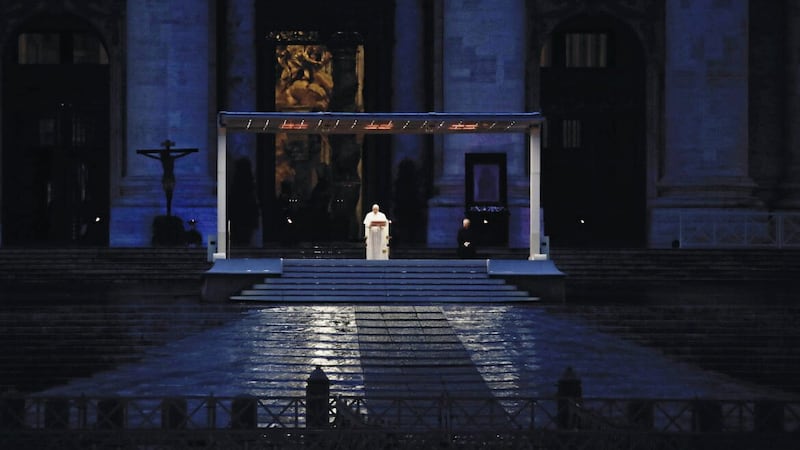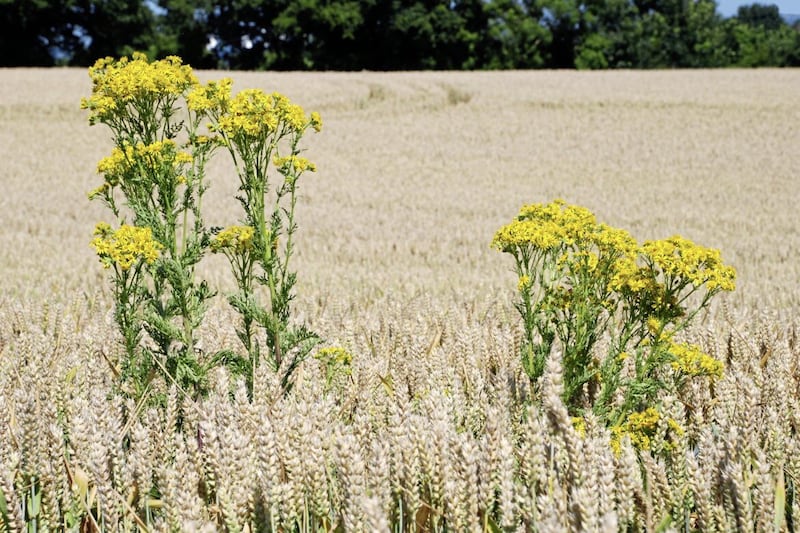"Now concerning the times and the seasons, brothers and sisters, you do not need to have anything written to you. For you yourselves know very well that the day of the Lord will come like a thief in the night" (1 Thessalonians 5:1-2).
WITH these words, the Apostle Paul encouraged the Thessalonian community to remain steadfast, their hearts and feet firmly planted and their gaze fixed on the world around them and the events of history, even as they awaited the Lord's return.
When tragic events seem to overwhelm our lives, and we feel plunged into a dark and difficult maelstrom of injustice and suffering, we are likewise called to keep our hearts open to hope and to trust in God, who makes himself present, accompanies us with tenderness, sustains us in our weariness and, above all, guides our path.
Covid-19 plunged us into a dark night. It destabilised our daily lives, upset our plans and routines, and disrupted the apparent tranquillity of even the most affluent societies.
It generated disorientation and suffering and caused the death of great numbers of our brothers and sisters.
In addition to its physical aspects, Covid-19 led to a general malaise in many individuals and families; the long periods of isolation and the various restrictions on freedom contributed to this malaise, with significant long-term effects.
Nor can we overlook the fractures in our social and economic order that the pandemic exposed, and the contradictions and inequalities that it brought to the fore.
Only rarely do individuals and societies achieve progress in conditions that generate such feelings of despondency and bitterness, which weaken efforts to ensure peace while provoking social conflict, frustration and various forms of violence.
Three years later, the time is right to question, learn, grow and allow ourselves to be transformed as individuals and as communities; this is a privileged moment to prepare for "the day of the Lord".
I have already observed on a number of occasions that we never emerge the same from times of crisis: we emerge either better or worse.
Today we are being asked: What did we learn from the pandemic? What new paths should we follow to cast off the shackles of our old habits, to be better prepared, to dare new things? What signs of life and hope can we see, to help us move forward and try to make our world a better place?
Certainly, after directly experiencing the fragility of our own lives and the world around us, we can say that the greatest lesson we learned from Covid-19 was the realisation that we all need one another.
That our greatest and yet most fragile treasure is our shared humanity as brothers and sisters, children of God. And that none of us can be saved alone.
Consequently, we urgently need to join together in seeking and promoting the universal values that can guide the growth of this human fraternity.
We also learned that the trust we put in progress, technology and the effects of globalisation was not only excessive, but turned into an individualistic and idolatrous intoxication, compromising the very promise of justice, harmony and peace that we so ardently sought.
Yet the pandemic also had its positive effects. These include a chastened return to humility, a rethinking of certain consumeristic excesses, and a renewed sense of solidarity that has made us more sensitive to the suffering of others and more responsive to their needs.
This experience has made us all the more aware of the need to restore the word "together" to a central place. For it is together, in fraternity and solidarity, that we build peace, ensure justice and emerge from the greatest disasters.
Even so, at the very moment when we dared to hope that the darkest hours of the Covid-19 pandemic were over, a terrible new disaster befell humanity.
We witnessed the onslaught of another scourge: the war in Ukraine. It is reaping innocent victims and spreading insecurity, not only among those directly affected, but in a widespread and indiscriminate way for everyone, also for those who, even thousands of kilometres away, suffer its collateral effects – we need but think of grain shortages and fuel prices.
Clearly, this is not the post-Covid era we had hoped for or expected.
This war, together with all the other conflicts around the globe, represents a setback for the whole of humanity and not merely for the parties directly involved. While a vaccine has been found for Covid-19, suitable solutions have not yet been found for the war.
Certainly, the virus of war is more difficult to overcome than the viruses that compromise our bodies, because it comes, not from outside of us, but from within the human heart corrupted by sin.
In sharing these reflections, it is my hope that in the coming New Year we can journey together, valuing the lessons that history has to teach us.








